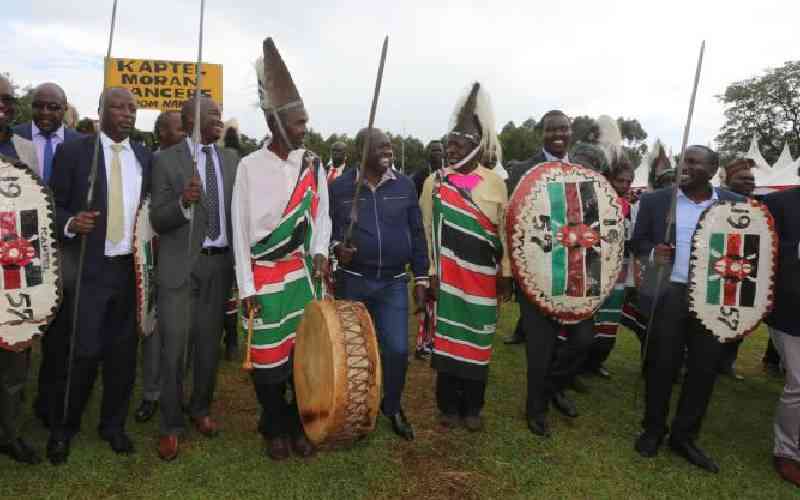×
The Standard e-Paper
Fearless, Trusted News

Deputy President Rigathi Gachagua (centre) joins Kalenjin elders in dance during Nandi legend Koitalel Arap Samoei's 117 commemoration ceremony at the Nandi Bears Club. [Peter Ochieng, Standard]
Over a century ago, freedom hero Koitalel arap Samoei was gunned down by the British.